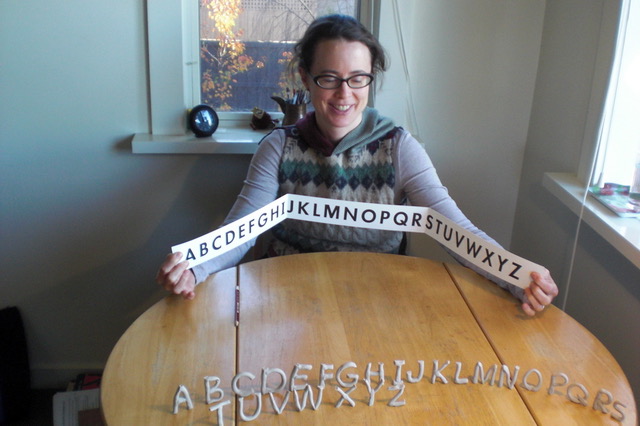

Despite their best efforts, dyslexic adults can fail to realize their potential. We understand how you feel; struggling with words can be extremely frustrating for adults at home, work, with the family. If you or somebody you know is being held back, by language barriers, the Davis Correction Program for adults will bring relief. Additionally, it is a pleasurable process.
Watch Suzanne explain the Davis Dyslexia Correction Program for all ages
Most adult dyslexics will exhibit at least 10 of the following traits and behaviors. These characteristics are often inconsistent, and may vary depending upon the day or situation. If you, your spouse, or an employee displays at least 10 of these common symptoms, an initial consultation would be appropriate to see if the Davis® Program would be a fit. We understand how challenging this is for adults; a correction and relief from the challenges can be yours. We can help you move to a higher level at home, work and in relationships.

Career
- Employed in job/position that will hide difficulties or not require dealing with problematic areas.
- Hides difficulties from co-workers, friends and even family.
- Becomes frustrated at “planning meetings” and sequential tasks – already knows how to do it.
- Becomes frustrated or overwhelmed with long forms or sequential processes.
- Thrives in careers where visual-spatial / kinesthetic talents can be realized: For example – Entrepreneurs, Engineers, Trades (carpentry, plumbing, electrical), Artisans, Interior Decorating, Actors, Musicians, Police/Investigation, Athletes, and Business Executives (usually with staff/assistants).
- May pass up advancement opportunities that would require more administrative work.
- Has difficulty focusing and staying on task.
- May feel more comfortable managing many different tasks simultaneously.
- Difficulty with tests – passing standardized tests can be a barrier to career advancement.
- Highly successful/over achiever, or considered “not working up to potential.” Either way, displays extreme work ethic.
- May be a perfectionist and overreact when they make a mistake.
- Out-of-the-box thinker or operates with very strict rules for themselves.
- Learns best through hands-on experience, demonstrations, experimentation, observation, and visual aids.
General
- Highly intuitive – known to have “street smarts.” Is often “dead on” in judging personalities of others.
- May be able to sense emotions and energy of others.
- Remembers struggling in school.
- Frequently have dyslexic children and experience guilt when seeing own child struggle.
- Insecurities arise while reading to own children or helping them with homework.
- Easily distracted/annoyed by noises and other things in environment.
- May appear to “zone out” and be unaware that it is happening.
- Enjoys video games.
- Misspeaks, misuses, or mispronounces words without realizing it.
- May have poor balance or is/was very athletic.
- May have excellent recall of events that were experienced or not remember at all.
- May confuse past conversations or be accused of “not listening.”
- Difficulty remembering names of people without tricks, but remembers faces.
- Difficulty remembering verbal instructions or directions.
- Poor recall of conversations or sequence of events.

Reading, Writing, and Spelling
- Difficulty reading unfamiliar fonts.
- Avoids reading out loud. May dislike public speaking.
- Will commonly perceive that they “read better silently.”
- Has adopted compensatory tricks to remember spelling and homonyms (their, there, they’re)
- Misuses homonyms and has poor or inconsistent/phonetic spelling.
- Reading fluency and comprehension fluctuates depending upon subject matter.
- Frequently has to re-read sentences in order to comprehend.
- Fatigues or becomes bored quickly while reading.
- Reliance on others (assistants, spouses, significant others) for written correspondence.
- Uncertainty with words, punctuation, and spelling when writing. Reliance on spell-check and grammar-check.
- Words out of context look “wrong.”
- Writes with all capital letters, or mixes capital letters within words. Abbreviates words frequently.
- Poor handwriting – masks spelling mistakes.

Math, Time Management, Directions
- May understand higher math, but can’t show it on paper.
- May excel at math, or may still rely on tricks for remembering math facts.
- Relies on calculators or finger counting. May have difficulty with making change.
- Difficulty with left/right and/or North, South, East, West.
- Gets lost easily or never forgets a place they’ve been.
- Difficulty reading maps.
- May have anxiety or stress when driving in unfamiliar places.
- Relies on others to drive when possible.
- May lose track of time and is frequently late – or is highly aware of it and is very rarely late.
- Finds it difficult to estimate how long a task will take to complete.

Behavior, Health, and Personality
- May have a short fuse or is easily frustrated, angered, or annoyed.
- Easily stressed and overwhelmed in certain situations.
- Low self-esteem.
- Self-conscious when speaking in a group.
- May have difficulty getting thoughts out.
- Speaks in halting phrases, pause frequently, or leave sentences incomplete. This may worsen with stress or distraction.
- Sticks to what they know – fear of new tasks or any situation where they are out of comfort zone.
- Extremely disorderly or compulsively orderly.
- Confusion, stress, physical health issues, time pressure, and fatigue will significantly increase symptoms.
